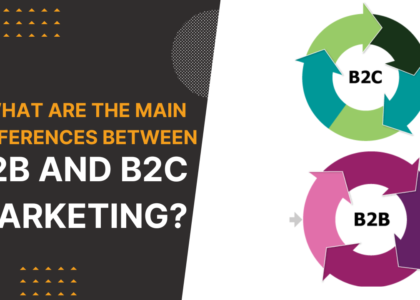Understanding Performance Marketing
At its core, performance marketing is a data-driven strategy focused on driving measurable actions, such as clicks, conversions, or sales. Unlike traditional marketing approaches that prioritize brand awareness or impressions, performance marketing revolves around delivering concrete outcomes directly tied to business objectives. It’s a results-oriented paradigm that ensures every marketing dollar spent generates a quantifiable return on investment (ROI).
The Dynamics of Product Businesses
In the realm of product businesses, the dynamics are distinctively shaped by factors such as market saturation, consumer preferences, and technological advancements. Unlike service-based enterprises, product businesses often face the challenge of tangible inventory, making inventory management, turnover, and sales crucial metrics for success.
Key Reasons Why Performance Marketing Is Essential for Product Businesses
1. Precision Targeting
Performance marketing enables product businesses to pinpoint their target audience with remarkable precision. Through advanced analytics, businesses can identify demographic segments, psychographic profiles, and behavioral patterns of their ideal customers. This granular understanding allows for hyper-targeted campaigns, ensuring that marketing efforts resonate with the right audience, thereby maximizing conversion rates.
2. Cost-Efficiency
In traditional marketing channels, businesses often allocate substantial budgets without clear insights into their ROI. However, performance marketing operates on a pay-for-performance model, where advertisers only pay when specific actions are achieved. Whether it’s a click, a lead, or a sale, this cost-effective approach ensures that marketing expenditures are directly correlated with desired outcomes, optimizing budget allocation and maximizing efficiency.
3. Measurable ROI
One of the most compelling aspects of performance marketing is its inherent measurability. Unlike abstract metrics like brand awareness or sentiment, performance marketing metrics are tangible and quantifiable. Businesses can track key performance indicators (KPIs) in real-time, gaining immediate insights into campaign effectiveness. By analyzing metrics such as conversion rates, customer acquisition costs, and lifetime value, businesses can iteratively refine their strategies for continuous improvement.
4. Scalability and Flexibility
Performance marketing offers unparalleled scalability and flexibility, making it adaptable to businesses of all sizes. Whether you’re a budding startup or an established enterprise, the modular nature of performance marketing allows for seamless scalability according to business objectives and market conditions. Additionally, its digital nature enables rapid iteration and optimization, empowering businesses to pivot strategies swiftly in response to changing trends or competitive landscapes.
5. Enhanced Customer Engagement
In the digital age, consumers demand personalized, interactive experiences from brands. Performance marketing facilitates tailored messaging and dynamic content delivery, fostering deeper engagement with customers. By leveraging data insights, businesses can craft compelling campaigns that resonate with individual preferences, driving higher levels of customer satisfaction, loyalty, and advocacy.
Real-World Success Stories
Countless product businesses have harnessed the power of performance marketing to achieve remarkable success. From direct-to-consumer (DTC) brands disrupting traditional industries to e-commerce giants dominating global markets, the impact of performance marketing is undeniable. Brands like Casper, Dollar Shave Club, and Glossier have leveraged data-driven strategies to not only acquire customers but also build thriving communities and cult-like followings.
Conclusion: Unleashing the Potential of Performance Marketing
In today’s competitive landscape, the importance of performance marketing for product businesses cannot be overstated. From its precision targeting capabilities to its cost-efficiency and measurable ROI, performance marketing offers a strategic framework that aligns marketing efforts with business objectives. By harnessing the power of data-driven insights and embracing a results-oriented mindset, product businesses can unlock new levels of growth, profitability, and customer engagement in the digital age.




